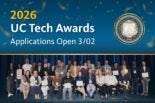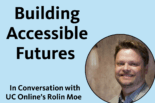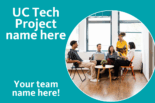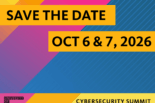Posted by Jim Phillips, Director of Learning Technologies and IT Accessibility, UCSC. UC Santa Cruz did an unusual thing this past May. To honor Global Accessibility Awareness Day (GAAD), we invited members of the Office of Civil Rights (OCR) to speak with us on May 21 about how they approach investigating an institution when a complaint has been filed. This is unusual because our campus is still in, though hopefully at the tail end of, a multi-year discussion with the OCR about improving accessibility for students.
Over 90 people attended two sessions: A keynote presentation by David LaDue and Mary Lou Mobley, and an afternoon workshop with Barry Johnson about the technical diagnostics he uses when asked to review a campus website. We also webstreamed the keynote to ten connections at other campuses.
The event marked a culmination of campus activities focusing on compliance with the systemwide IT Accessibility Policy, signed by President Yudof in August 2013. Our campus Accessible Technology (AT) Committee had spent the past year slogging through a first draft of an AT Plan. That draft was just being circulated among various faculty and administrative groups for input, which created a lot of buzz for the GAAD event. It was fortunate to have the OCR representatives on hand to describe in detail their thoughts and perspective.
Key points
So what were some of the big takeaways from the GAAD event and the ensuing conversations on our campus? Here is a brief list of ideas that might have relevance on your campus too:
- Lots of people don’t understand the basics of accessibility, much less even know we have a systemwide policy. That said, attendees were genuinely appreciative that the conversation has started on our campus.
- Accessibility is a “civil rights” issue. That is why the OCR gets involved when there are investigations of college and university campuses.
- A campus has to be proactive. Incorporate accessibility into the baseline requirements for all new projects. If accessibility is seen as secondary or out of scope, it will likely not be addressed at all, or be all the more onerous to address later.
- If you are someone who supports accessibility initiatives, don’t read too much into negative responses. In many cases, people who initially hear about the policy are taken aback and may respond negatively as they consider all the ramifications (and implied work!). In many cases, they are nevertheless internalizing the message and may eventually even take positive steps in the future. Give them time.
- Emphasize “universal design” over “compliance.” Using the term “compliance” is a turn off. When interacting with groups, particularly faculty, emphasize universal access and the benefits to students and other consumers of our content over the consequences and risks of non-compliance.
- The need to caption video is upon us… and it will be expensive.
- Does this apply to me? Many people hope that someone else or some magical software will swoop in and make their content or system accessible. But content producers are ultimately responsible for the design and accessibility of their content. This does not mean that faculty have to be the ones who specifically do the work to make the content accessible all by themselves. We need to implement logical support structures to help our faculty and other content providers succeed.
Since the GAAD event, we have received considerable input on our draft AT Plan and the next step will be to revise it based on the feedback. Some folks thought we were inviting “the fox into the hen house” to have the OCR come and speak. And, to be honest, they were candid about some of the challenges we and other campuses face. But I was glad we took the opportunity to invite them and listen to their side, to see them less as an adversary and more as a partner.








GAAD’s focus is on raising awareness about making the web, mobile, and other technological experiences accessible and usable to people with different disabilities.